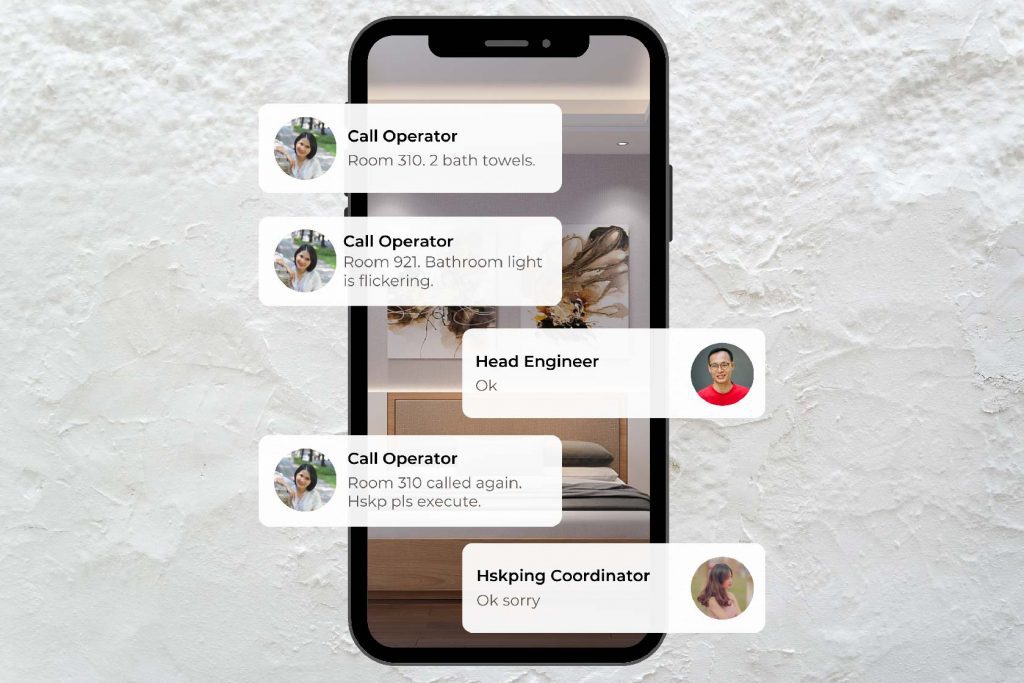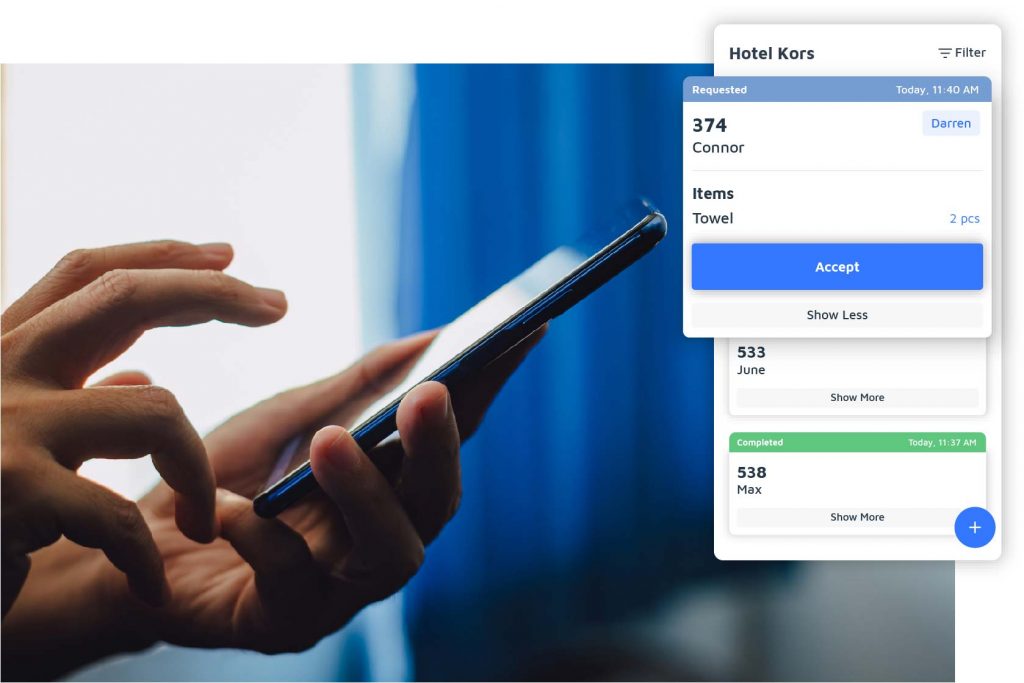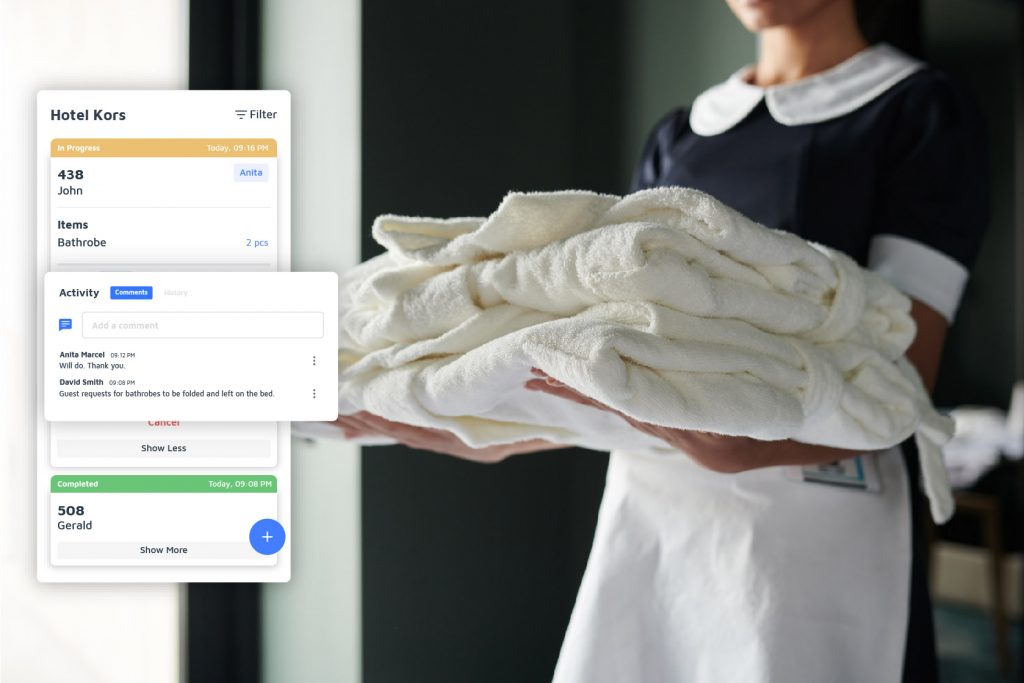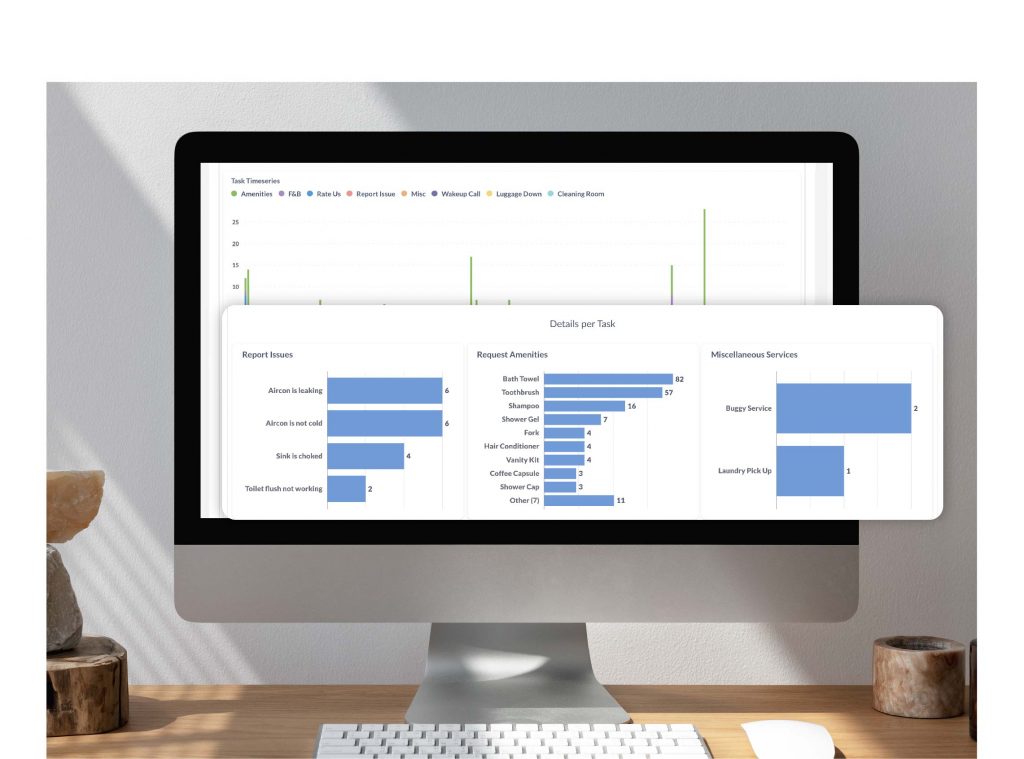
4 Reasons Hotels Should Break Free from Messaging Apps
In the fast-paced world of hospitality, communication is the key to success. Hotels often rely on messaging apps to keep their teams connected and operations running smoothly. However, while these apps offer instant communication, they may fall short when it comes to effective task management.
In this article, we explore four compelling reasons why hotels should consider transitioning from messaging apps to a task management software designed for their operations.

1. A Breeding Ground for Disorganisation, Missed Tasks and Unhappy Guests
In the bustling environment of a hotel, tasks can easily slip through the cracks when managed solely through messaging apps. Whether it’s room service orders, housekeeping updates, or maintenance issues, relying on the unstructured nature of messaging platforms can result in missed assignments and, ultimately, disgruntled guests.
A task management software can provide a structured framework for task allocation and tracking. With designated task lists, escalations, and progress updates, operations managers can ensure that every responsibility is addressed promptly. This organised approach minimises the risk of overlooked tasks, enhancing overall guest satisfaction and maintaining the hotel’s reputation for top-notch service.

2. Empower Staff to Take Initiative Without Constant Supervision
One of the drawbacks of messaging apps is the need for constant supervision and assignment from managers. This can create bottlenecks in task distribution and completion. With the right task management software, hotels can empower their staff to take initiative and take on tasks independently.
The software’s interface should allow team members to view all pending tasks, allow pick up initiations, prioritise based on urgency, and take ownership of assignments without waiting for explicit instructions from supervisors. This not only streamlines the workflow but also fosters a sense of responsibility among staff members, leading to increased productivity and a more efficient operation.

3. Improved Communication and Collaboration
While messaging apps facilitate communication, they often lack the collaborative features necessary for complex hotel operations. A good task management software not only centralises communication but also enhances cooperation among staff.
Within this ecosystem, teams can share updates and important information regarding each activity in a centralised hub, reducing the risk of miscommunication. Features such as comment threads, real-time updates and activity logs ensure that everyone is on the same page. This heightened level of collaboration fosters a sense of teamwork, minimises misunderstandings, and ensures that tasks are executed seamlessly. As a result, hotels can provide a more synchronised and efficient service, creating an environment where every team member is empowered to contribute to the overall success of the operation.

4. Harness the Power of Data Analytics for Improved Operations
Messaging apps excel at real-time communication, but they lack the analytical capabilities required for strategic decision-making. Well designed management softwares, on the other hand, can open up a world of possibilities through data analytics.
By leveraging the right type of software, hotels can collect and analyse data on task completion times, common bottlenecks, and staff productivity. These insights enable management to make informed decisions, optimise workflows, and enhance overall operational efficiency. From predicting peak service times to identifying areas for process improvement, data analytics become a powerful tool in elevating the guest experience and fine-tuning the hotel’s daily operations.
Conclusion
While messaging apps play a crucial role in facilitating communication in hotels, they may not be the ideal solution for comprehensive task management for operations. Transitioning to a dedicated software brings a level of organisation, autonomy, teamwork and analytical capability that can significantly enhance a hotel’s operational efficiency and guest satisfaction.
If you’re seeking a reliable task management software that supports every aspect of your hotel operations, look no further than Vouch. Get in touch with us today.

4 Reasons Hotels Should Break Free from Messaging Apps
In the fast-paced world of hospitality, communication is the key to success. Hotels often rely on messaging apps to keep their teams connected and operations running smoothly. However, while these apps offer instant communication, they may fall short when it comes to effective task management.
In this article, we explore four compelling reasons why hotels should consider transitioning from messaging apps to a task management software designed for their operations.

1. A Breeding Ground for Disorganisation, Missed Tasks and Unhappy Guests
In the bustling environment of a hotel, tasks can easily slip through the cracks when managed solely through messaging apps. Whether it’s room service orders, housekeeping updates, or maintenance issues, relying on the unstructured nature of messaging platforms can result in missed assignments and, ultimately, disgruntled guests.
A task management software can provide a structured framework for task allocation and tracking. With designated task lists, escalations, and progress updates, operations managers can ensure that every responsibility is addressed promptly. This organised approach minimises the risk of overlooked tasks, enhancing overall guest satisfaction and maintaining the hotel’s reputation for top-notch service.

2. Empower Staff to Take Initiative Without Constant Supervision
One of the drawbacks of messaging apps is the need for constant supervision and assignment from managers. This can create bottlenecks in task distribution and completion. With the right task management software, hotels can empower their staff to take initiative and take on tasks independently.
The software’s interface should allow team members to view all pending tasks, allow pick up initiations, prioritise based on urgency, and take ownership of assignments without waiting for explicit instructions from supervisors. This not only streamlines the workflow but also fosters a sense of responsibility among staff members, leading to increased productivity and a more efficient operation.

3. Improved Communication and Collaboration
While messaging apps facilitate communication, they often lack the collaborative features necessary for complex hotel operations. A good task management software not only centralises communication but also enhances cooperation among staff.
Within this ecosystem, teams can share updates and important information regarding each activity in a centralised hub, reducing the risk of miscommunication. Features such as comment threads, real-time updates and activity logs ensure that everyone is on the same page. This heightened level of collaboration fosters a sense of teamwork, minimises misunderstandings, and ensures that tasks are executed seamlessly. As a result, hotels can provide a more synchronised and efficient service, creating an environment where every team member is empowered to contribute to the overall success of the operation.

4. Harness the Power of Data Analytics for Improved Operations
Messaging apps excel at real-time communication, but they lack the analytical capabilities required for strategic decision-making. Well designed management softwares, on the other hand, can open up a world of possibilities through data analytics.
By leveraging the right type of software, hotels can collect and analyse data on task completion times, common bottlenecks, and staff productivity. These insights enable management to make informed decisions, optimise workflows, and enhance overall operational efficiency. From predicting peak service times to identifying areas for process improvement, data analytics become a powerful tool in elevating the guest experience and fine-tuning the hotel’s daily operations.
Conclusion
While messaging apps play a crucial role in facilitating communication in hotels, they may not be the ideal solution for comprehensive task management for operations. Transitioning to a dedicated software brings a level of organisation, autonomy, teamwork and analytical capability that can significantly enhance a hotel’s operational efficiency and guest satisfaction.
If you’re seeking a reliable task management software that supports every aspect of your hotel operations, look no further than Vouch. Get in touch with us today.
